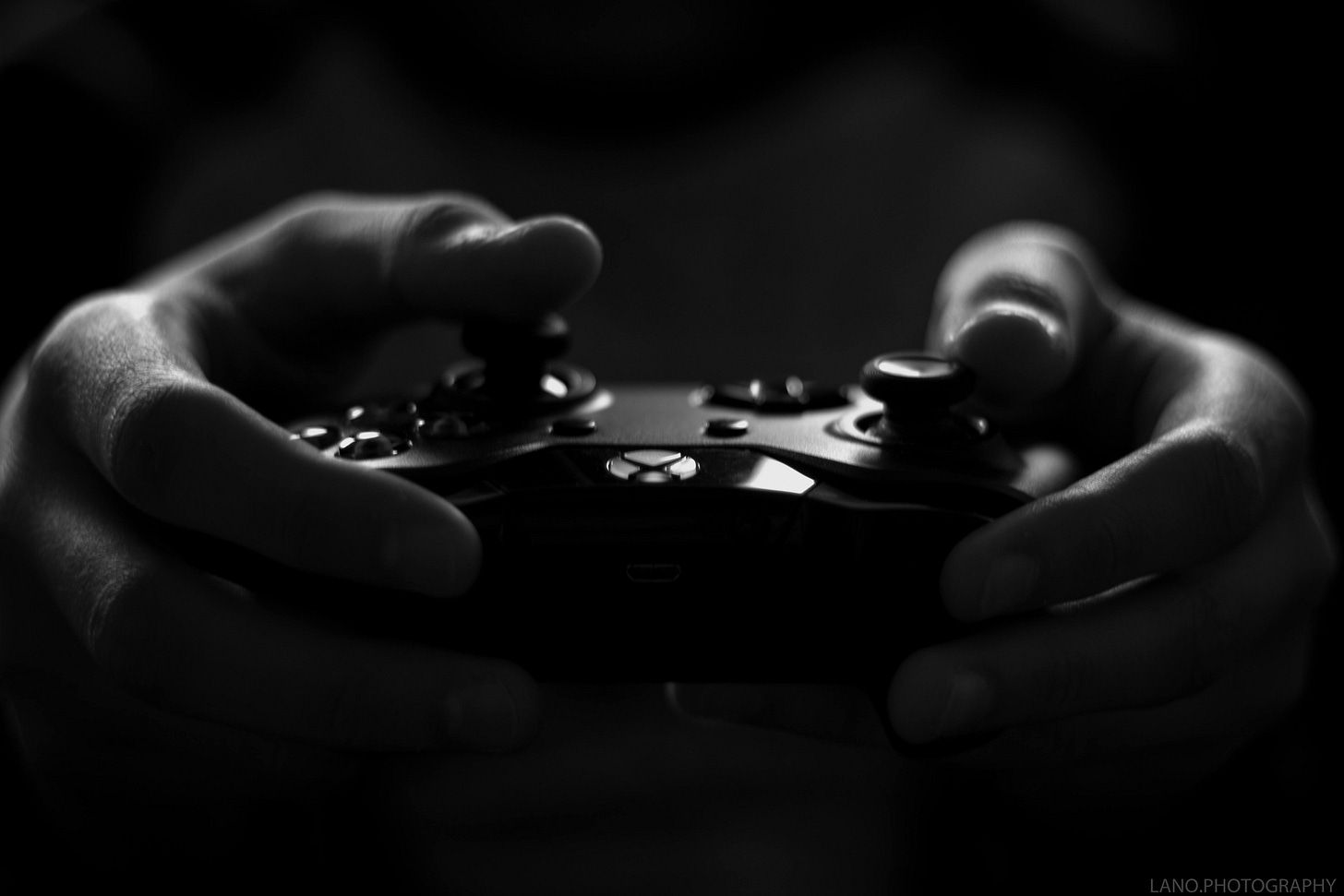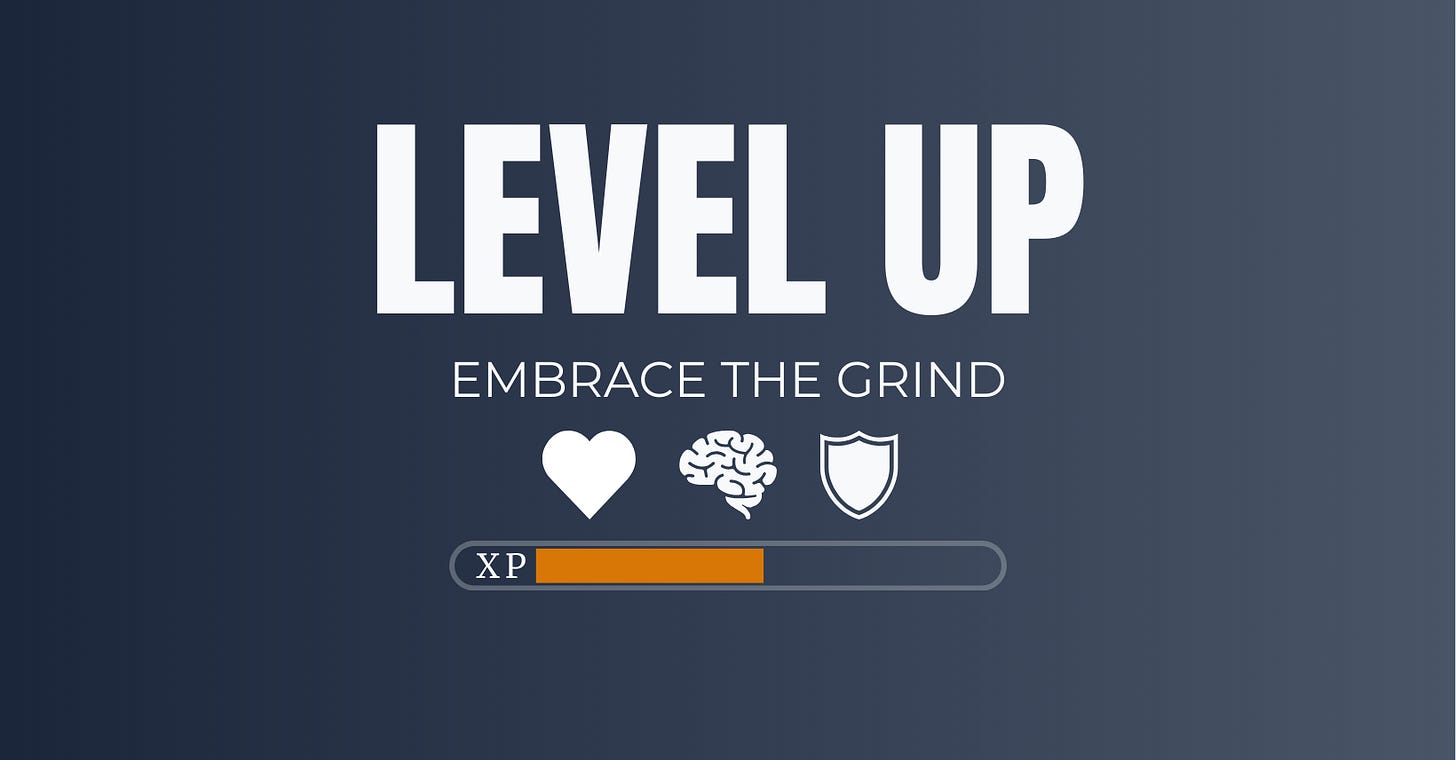Stop Button Mashing
What video games can teach us about panic, ego, and the power of thoughtful responses.
**Disclaimer: I’ve created a space (a private Facebook group called Level Up) for men who are ready to change—not because they’re broken, but because they’re ambitious. I believe that the path to real success in relationships, work, and life more generally starts by unlocking the skills you may never have been taught growing up.
My 13-year-old son and I will sometimes play each other in Super Smash Bros. I enjoy it- mostly because he enjoys it- but I think it’s fair to say that I’m REALLY pretty bad at it.
And here’s why, with that particular game, I’m a button masher. I don’t know what I’m doing so I just press a bunch of buttons, lashing out uncontrollably and wildly, and hope that it works. My son, meanwhile, is precise and intentional. He knows exactly what he’s doing. Consequently, he wins about 75% of the time.
That’s the thing about button mashing, though. It works sometimes (especially if you're playing against another button masher). It’s a wild and chaotic strategy, but it allows you to be successful regularly enough that you might not realize how much better you could be doing if you were to be more strategic, thoughtful, and precise.
Here’s the other thing that’s interesting about all of this. I only use button mashing in that particular game, and I think it’s because that game is already pretty chaotic. I feel like I’m in over my head, so I flail around wildly in the hopes that it will work.
What’s Emotional Button Mashing?
I think the same is true outside of the game. Emotional button mashing is what happens when we react out of rage, panic, or ego, especially when we feel overwhelmed. It’s a rapid-fire responses that feel like we’re doing something powerful and sometimes works, but often make things worse. We do it because it’s familiar. It’s how many of us were taught (or not taught) to handle stress, conflict, or emotional pain. In the moment, reacting feels like control. But it’s usually just a way to decrease discomfort, protect our pride, or avoid vulnerability. And like in the game, it usually ends with us getting knocked out
The fallout from emotional button mashing is real. When we lash out without thinking, we often say things we don’t mean, make choices we regret, or damage relationships that matter. It might feel powerful in the moment, but it usually leaves behind a mess—hurt feelings, broken trust, and a deeper sense of frustration. Over time, this pattern can turn into a cycle: react, regret, repeat. Instead of resolving problems, we end up feeding the very emotions we’re trying to escape—anger, shame, and helplessness. It’s a short-term release with long-term costs.
A Better Option
The better move—the one that actually wins the game—is to slow down and choose your response. Emotional strength isn’t about reacting faster or hitting harder; it’s about recognizing what you feel and responding with intention. That might mean pausing before replying to a hurtful comment, taking a breath during an argument, or walking away to think before making a big decision. These aren’t signs of weakness; they’re signs of control. In Super Smash Bros, my son wins not because he’s faster, but because he attacks, defends, and reacts with purpose. Emotional life works the same way.
Level Up is a space for men who are ready to grow—not because they’re broken, but because they’re ambitious. I believe that the path to real success in relationships, work, and life more generally starts by unlocking the skills you may never have been taught growing up.



